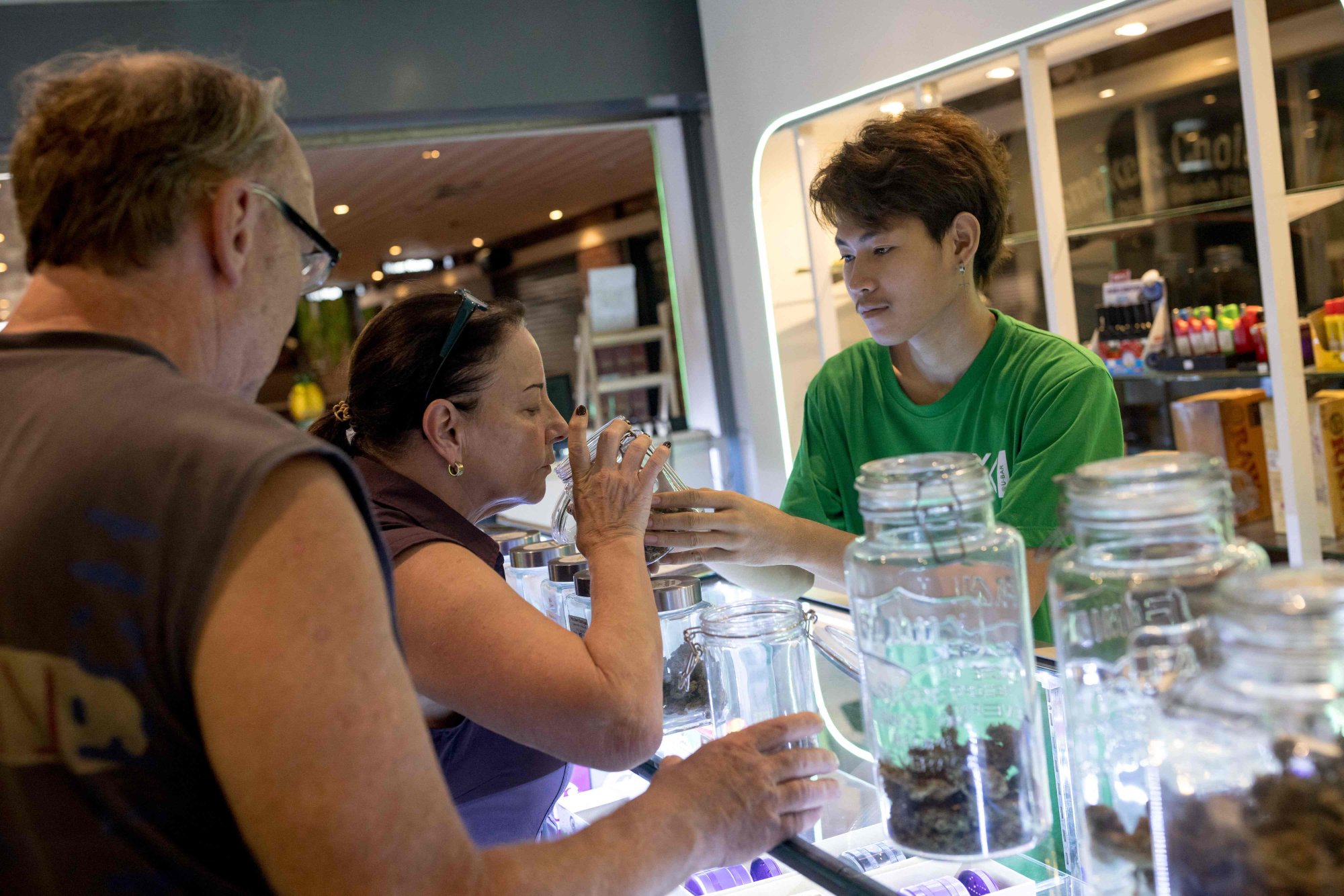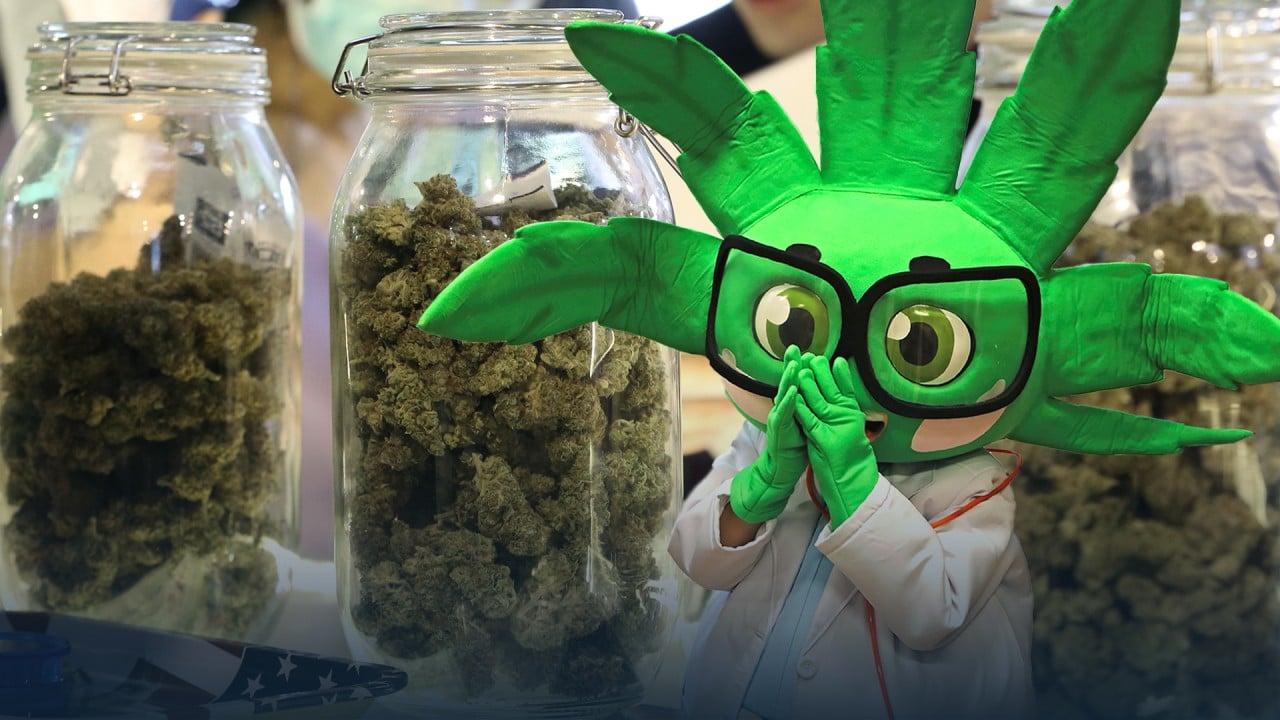“It’s an issue of great concern to us, because the legal gap has led to free use of cannabis and there aren’t enough regulations to prevent misuse,” Cholnan said, defining “misuse” as anything not related to medical and health needs. “This bill will control cannabis, especially its buds, just as strictly as we would a drug.”
Malaysians lament end of holiday highs as Thailand considers cannabis U-turn
Malaysians lament end of holiday highs as Thailand considers cannabis U-turn
From backpacker hang-outs in Bangkok to popular resort islands like Phuket, operators of cannabis dispensaries say they’re helping to fuel a recovery in the country’s tourism sector, a key driver of economic growth.
In addition to marijuana for smoking, extracts have become big business. Companies now sell everything from cannabis buds to oil extracts, weed-infused confectionery and baked goods that, under current law, must contain no more than 0.2 per cent tetrahydrocannabinol – the psychoactive compound known as THC that provides a “high” sensation. That limit does not apply to cannabis sold for smoking.
While lighting up in public is currently banned, under the proposed bill, people who smoke or use cannabis in any location for recreation – including inside their homes – would face a fine of as much as 60,000 baht (US$1,700). Those selling cannabis or its extracts for recreational purposes would face up to one year in jail or 100,000 baht in fines, or both.
Thousands of cannabis dispensaries will not necessarily need to close down immediately after the bill passes, but they will need to quickly fall in line with the new rules or risk hefty penalties, Cholnan said. Dispensaries will be allowed to keep operating until the their existing licences expire, but they will not be provided any grace period under the new bill.
The draft legislation calls for tighter licensing rules on cannabis planting, sales, exports and imports, with current growers, suppliers or related businesses required to have or obtain new licenses or permits.
“It will kick in like a bang,” said Cholnan. “You can’t brazenly use it recreationally any more. You can’t put the buds in jars and sell them for recreation any more, to use for fun at parties, any more. That will be illegal, and we’ll arrest you.”
Such an outright ban will risk pushing the nascent industry underground again and will bring devastating economic impacts, said Rattapon Sanrak, founder of the cannabis advocacy group Highland Network. An estimated investment of at least 7 billion baht by about 7,000 dispensaries all over Thailand and at least 14,000 jobs they created are at stake, according to Rattapon.
Thailand could face class-action suits over weed U-turn: ‘lawyers are ready’
Thailand could face class-action suits over weed U-turn: ‘lawyers are ready’
Under the current system, the cannabis industry was expected to be worth US$1.2 billion by 2025, according to a 2022 report by the University of the Thai Chamber of Commerce.
“The cannabis industry has fully come above ground and is thriving,” Rattapon said. “The ban will have far-reaching impacts, especially for small businesses and farms. It will force us to close down and eventually die out.”
But Cholnan played down those concerns, saying cannabis’ standing as an economic crop will not be affected. Growers and producers will just have to abide by stricter rules that demand higher standards for medical uses, which will in turn add value to their products, he said.

There are about 15,000 cannabis-related businesses officially registered with the government, including dispensaries and medical clinics, according to Cholnan.
“It’s true that we’re trying to drive the economy. But we don’t support any economic activity that could be dangerous for public health,” he said.
There is no better option, Cholnan said, adding that the government could have taken a harsher approach.
“We can do it this way, or we can make cannabis a narcotic again, and everyone will be prosecuted,” he said. “This bill is already a compromise.”


